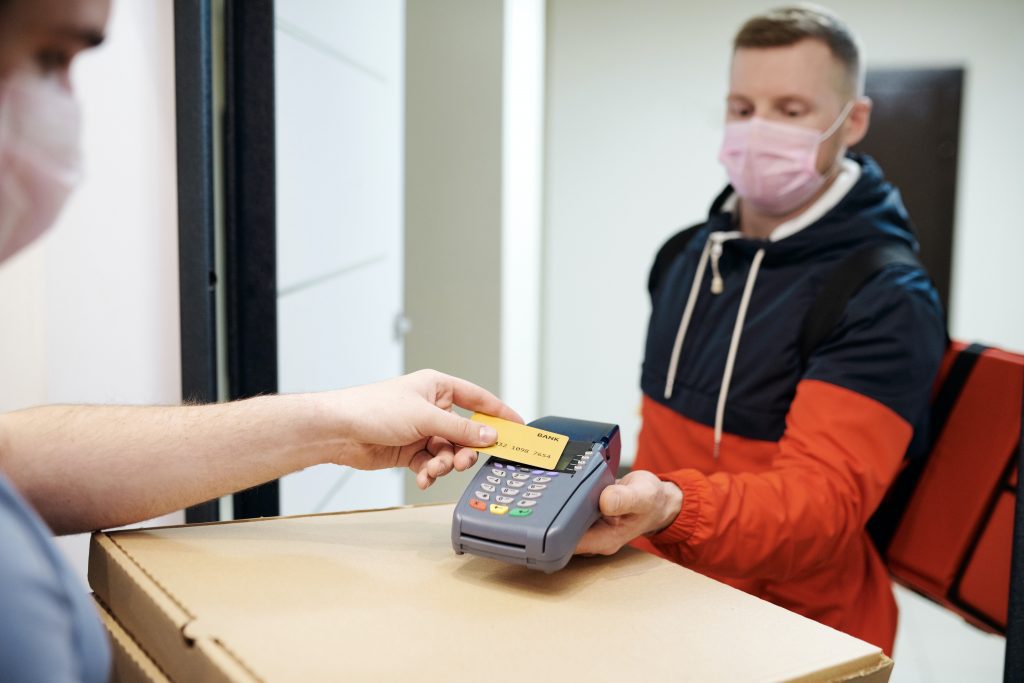By Danielle Moore // SWNS
NEWS COPY W/ VIDEO + INFOGRAPHIC
If the pandemic has forced you to make long-term changes to your spending strategy, you’re far from alone.
It will take the average American seven months to pay off the credit card debt they accumulated during the pandemic, according to new research.
A new survey of 2,000 Americans found that 46% have relied on their credit cards more often than they would have liked to since the beginning of the pandemic.
However, 67% of respondents also believe they can pay off what they put on their cards in nine months or less.
The survey also reveals that 73% have made a concerted effort to shop smarter during this period.
Top strategies among respondents included shopping sales (61%), using coupons (54%), buying in bulk (41%), or using interest-free buy now pay later payment options (25%) as a means of better managing their personal finances.
Commissioned by global payments and shopping service Klarna and conducted by OnePoll, the survey also looked at how employing smarter shopping tactics has bolstered consumers’ confidence in the midst of economic uncertainty.
If increased reliance on credit cards indicates anything, it’s that Americans have been feeling the crunch.
It’s no surprise that nearly eight in 10 say the pandemic has made them more mindful of their budget.
And 79% say that being mindful of their spending habits and using strategies to save while shopping allow them to feel more confident in their financial future.
Sixty-nine percent of respondents consider themselves to be savvy shoppers, and of these, 53% say that they would not have identified as a savvy shopper prior to the pandemic, but they do now.
Seventy-eight percent say they’ve also made a conscious effort to spend less over the course of the past six months.
Upcycling is one strategy cited to help respondents save, with 36% having reworked clothes, about one in three fixing up old home goods and 29% giving new life to old furniture since the start of the pandemic.
Price comparisons were another common tactic for saving, with one in three respondents reporting that they engaged in price comparisons every time they shopped or browsed online or via an app over the course of the past five months.
Additionally, buying in bulk saved the average respondent who chose to do so $164 since the start of the crisis.
And about one in four respondents utilized buy now, pay later options to spread their spending over time without having to pay interest.
“There’s a growing demand for flexible payment options among US consumers, and that trend has only accelerated during the pandemic. Customers expect choice and flexibility and they will seek out better ways to manage their spending,” said David Sykes, Head of US at Klarna.
“Ultimately, being able to buy the things you need now and pay over time is an ideal solution for people seeking more responsible spending strategies, greater control over their finances, and less dependence on credit cards.”
The survey also examined the impact of the pandemic on longer-term spending strategies.
Although nearly half have been more reliant on their credit cards than they would have liked to be lately, seven in 10 respondents agreed that relying on credit is an unsustainable financial strategy for them in the long term.
And 66% percent of respondents agreed that spreading essential spending over time helps to boost their savings, as it keeps more money in the bank working for them.
TOP SHOPPING STRATEGIES DURING PANDEMIC
1. Shopping sales (61%)
2. Using coupons (54%)
3. Buying in bulk (41%)
TOP SOURCES OF VALUE WHEN SHOPPING
1. Deals (66%)
2. Loyalty programs (59%)
3. Club-related discounts (ex. AAA memberships) (32%)
4. Interest-free buy now, pay later options (32%)
